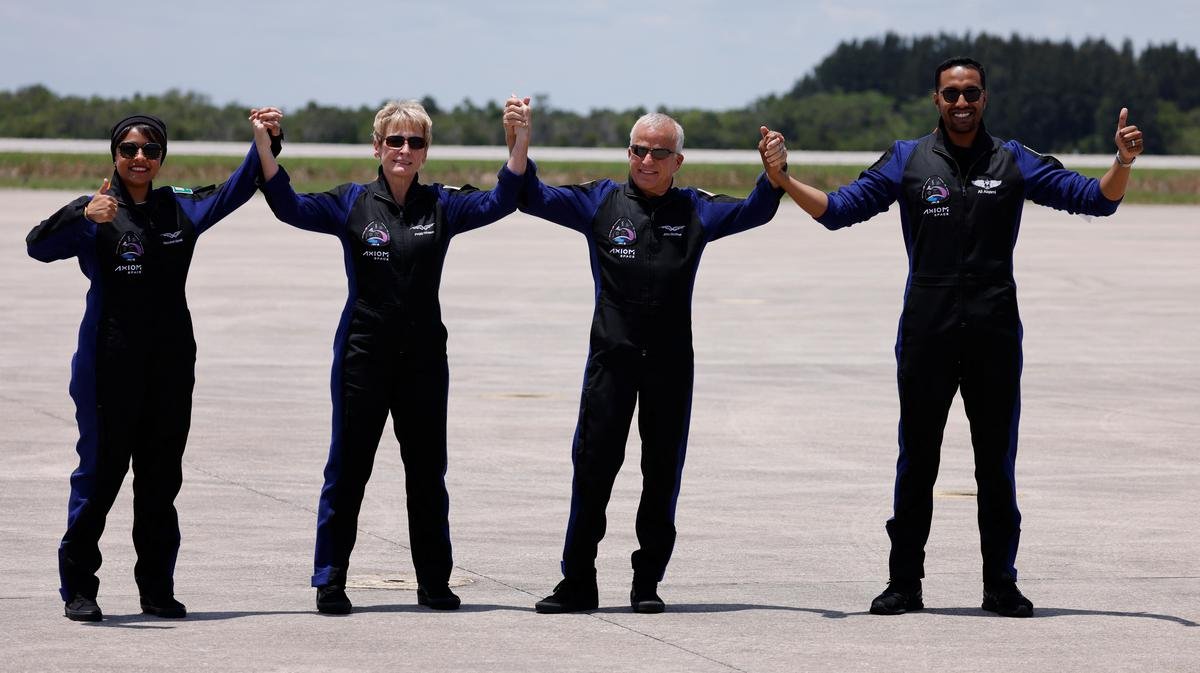Turkey’s inaugural astronaut, Alper Gezeravcı, alongside three European crew members, embarked on a journey to the International Space Station (ISS) from Florida on Thursday. The mission, organized by Texas startup Axiom Space in collaboration with SpaceX, marks another commercially arranged space voyage.
A SpaceX Crew Dragon capsule, carrying the quartet, lifted off on a Falcon 9 rocket from NASA’s Kennedy Space Center in Cape Canaveral. The autonomously operated Crew Dragon is set to reach the ISS early on Saturday, initiating a planned 36-hour flight to the orbiting laboratory.
Live coverage of the launch was provided on a joint webcast by Axiom and SpaceX, capturing the two-stage rocket’s ascent into Florida’s evening skies. The reusable lower stage successfully landed near the launch site, showcasing SpaceX’s commitment to cost-effective space travel.
The mission, known as Axiom-3, represents the third such flight organized by Axiom in the past two years. The Houston-based company specializes in putting astronauts sponsored by foreign governments and private entities into Earth orbit, charging a minimum of $55 million per astronaut seat.
The Axiom-3 crew, comprising Turkish Air Force veteran Alper Gezeravcı, Italian Air Force Colonel Walter Villadei, Swedish aviator Marcus Wandt, and Axiom executive Michael López-Alegría, is slated to spend approximately 14 days aboard the ISS. Their mission includes conducting over 30 scientific experiments, focusing on the effects of spaceflight on human health and disease.
This mission holds symbolic significance as Turkey, seeking EU membership, becomes a guest country on the ISS with its first human spaceflight. The multinational crew reflects the increasing global interest in Earth orbit for prestige, military capabilities, and satellite-based communications.
Upon successful docking with the ISS, the Axiom-3 crew will join the station’s current regular crew members from the United States, Japan, Denmark, and Russia. Axiom aims to establish a commercial space station as a successor to the aging ISS, which NASA plans to retire around 2030.



